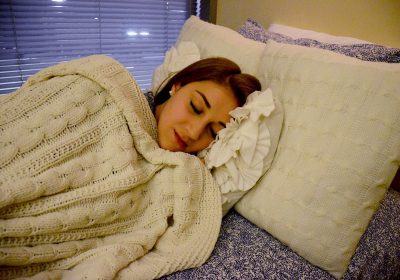
By Cameron Morsberger and Caroline DeHaven
In this unprecedented time, many people quarantined in their homes have turned to sleep for relaxation and escape from the daily stress of the coronavirus. Yet these worries in one’s waking life are now carrying over to the unconscious, producing vivid and often illogical dreams.
As a result of newfound concerns and societal shutdowns, many are reporting increasingly detailed dreams. This phenomenon is tied to rising cortisol levels and emotion-associated neurotransmitters, Sanford Auerbach, associate professor of psychiatry at the Boston University School of Medicine, said.
Auerbach, who is also the director of the Sleep Disorders Center at Boston Medical Center, said fears are communicated in sleep, as the brain’s cognitive functions change as a result of those waking memories.
REM sleep, the fifth and final stage in the sleep cycle, stands for Rapid Eye Movement sleep, wherein the brain is most active, resulting in dreaming. The dreams people remember are those that occur right before they wake up, Auerbach said.
“We know that there’s some sort of emotional valence that goes on during REM sleep,” Auerbach said. “I think that [this is] a stressful time for a lot of people, and I think that gets reflected in the dream content.”
The information people take in during the day often then appears in their dreams during the night, Auerbach said, and added that a disrupted circadian rhythm is to blame for the detailed nature of such visions.
“A lot of people don’t have the same sort of rigorous schedule that they did before, and so they sleep a little later, so they may have an opportunity to dream a little more,” Auerbach said. “Also, there is a lot of uncertainty in our times now, and that could certainly color the dreams that we have.”
David Shim, a psychology lecturer in the College of Arts and Sciences, taught a Psychology of Dreams course last fall, which focused on the neuropsychology of dreaming and how to interpret dream narratives. He said much of this dream imagery during quarantine is trauma-related.
“The content of our dreams is based on the things that are going on around us at the time, and more, things that we’re really focusing on,” Shim said. “I think a lot of people agree that this kind of life event is almost like a traumatic event… nobody has ever been through this, so nobody can ultimately tell you about how to manage.”
In his work as a clinical psychologist, Shim characterizes dreams based on a person’s current life experiences, which he said are reflective in their ongoing unconscious and subconscious state. He said patients who experience depression or anxiety will recall detailed dreams that point toward recurring mental disorders.
“Dreams start to reveal [someone’s] anxiety or their depression or their stress,” Shim said. “Most people have an increase in dreaming — colorful dreaming, stress dreams — during stressful periods of their life.”
However, while some are reporting lucid dreams, with symptoms similar to post-traumatic stress disorder, others are not sleeping at all. Brian Marx, a professor of psychiatry at BUSM, said insomnia and “sleep disturbance nightmares” are notable signs of anxiety during self-isolation.
Marx, who conducts research at the National Center for PTSD, said that maintaining good sleeping habits, especially given the severity of the pandemic, is essential to good mental health. Along with patients, others immediately impacted by the virus may be overworked and lacking adequate sleep, he said.
“[COVID-19] has an effect on the brain — people lose memories, they lose cognitive functions,” Marx said. “The normalcy of sleep among those who are caring for [COVID-19] patients has to be a very important concern, because… if you don’t get enough sleep, there’s no way that you could actually do your job.”
Besides increased sleeping disruptions, Marx said those who find themselves battling harmful thoughts and mental illnesses should utilize a telemedicine platform or hotline in seeking help and comfort.
“If you are having increased anxiety or depression or thoughts of self-harm or you’re not sleeping well,” Marx said, “it is very important to reach out to somebody who can help you.”



























































































































